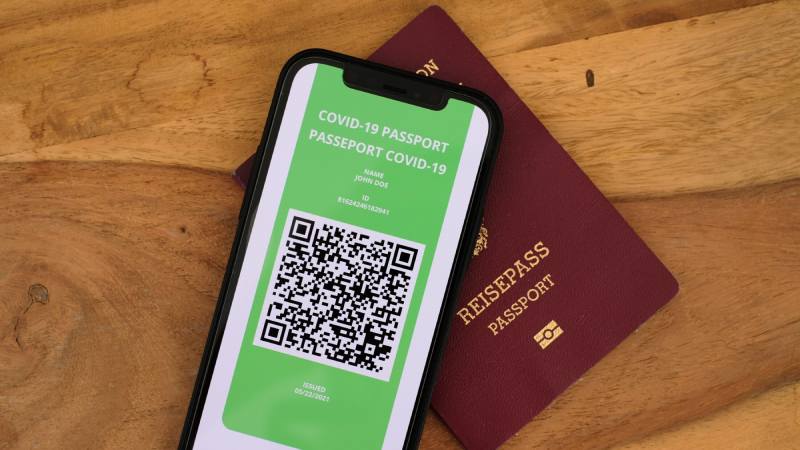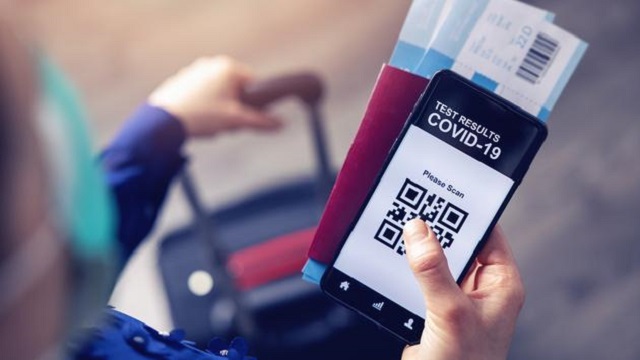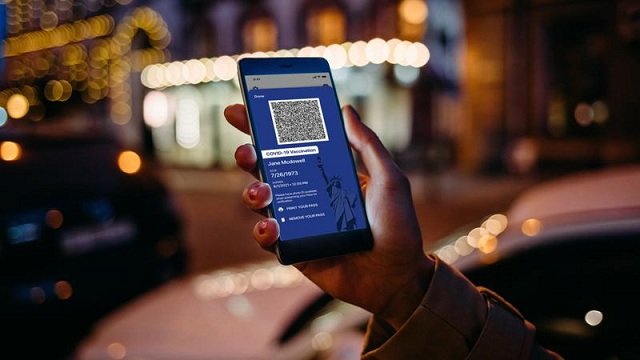Travel
Spain to launch an EU Digital Covid Certificate from July 1; How does it work for travel

Spain has announced it will launch an EU Digital Covid Certificate for visitors from July 1 to match with its lifting of Covid limitations on all guests from the UK.
Spanish Prime Minister Pedro Sanchez introduced the European Union’s (EU) planned Digital COVID Certificate, which is intended to be vital to reestablishing simple and safe travel across the alliance at the International Trade Fair held in Madrid on Friday.
President Pedro Sánchez affirmed the certificate would reestablish versatility across the EU following the news a week ago that UK holidaymakers would be permitted to enter the country with no limitations.
In a further declaration, the president said all explorers that have been completely vaccinated against Covid could enter Spain with no requirement for quarantine of negative tests.
Sanchez said the certificate was “a milestone” that would “facilitate the arrival of tourists, travel, and mobility” by “avoiding complex checks (for travelers) on arrival.”
Snr Sanchez said; “With the Digital Covid Certificate, Spain will resume all its economic activity safely and we will achieve mobility within the European Union this summer.”
“The EU Digital COVID Certificate will be free of charge, secure, and accessible to all. It will cover vaccination, test, and recovery offering different options to the citizens. It fully respects citizens’ fundamental rights, including protection of personal data,” the Commission said in a statement on Thursday.
The president focused on it ought not to be treated like a passport, nor travel document, and it’s not a requirement for travel.
“All EU citizens have a fundamental right to free movement in the EU. The EU Digital COVID Certificate, available in paper or digital format, will make it easier for Europeans to travel – whether to see their families and loved ones or to get some well-deserved rest,” the statement said.
“Member States shall refrain from imposing additional travel restrictions on the holders of an EU Digital COVID Certificate, unless they are necessary and proportionate to safeguard public health,” according to the statement.
Sanchez said on Friday that his country will resume to travelers from ten nations, including China and the United Kingdom (UK), “without restrictions or sanitary requirements” from May 24.
“It is a mechanism that will facilitate mobility, as well as arrival and passenger transit, and which will be launched as of July 1,” he specified.
The declaration will incorporate a QR code to affirm whether the person traveling is vaccinated, has contracted the disease, or has a negative PCR test result. In Spain. It will be accessible in electronic or paper format.
“This is, without a doubt, great news” the president added.
A large number of UK holidaymakers are set to jet to Spain and its islands this week following the affirmation that the nation was opening its boundaries to most international visitors.
Nonetheless, Spain and its islands stay on the Government amber list of destinations meaning holidaymakers should quarantine and take a series of Covid tests to get back to the UK.
Be that as it may, Britons were asked not to travel to Spain after Madrid opened the doors to tourists from the UK.
Business minister Anne-Marie Trevelyan disclosed to Sky News: “The Prime Minister has been clear that, for now, amber means ‘please don’t go unless there is an urgent family reason and so on because we are still trying to slowly move through our road map to being able to open up on June 21 and we want to do that steadily and carefully.”
She added that “we hope very much that, obviously, the amber numbers will become greener in due course” but “at the moment, today, that means amber countries really aren’t safe to go to”.
Different countries are Australia, New Zealand, Singapore, Israel, South Korea, Thailand, Rwanda, and Japan.
As of June 7, Spain will return to all international travelers without limitations as long as they can confirm that they have been completely vaccinated using a vaccine perceived by the World Health Organization (WHO) or the European Medicines Agency (EMA).
In any case, Spain stays on the UK government’s “amber” list, which implies that individuals traveling to the UK from Spain actually need to go into quarantine for ten days and give two negative COVID-19 tests after landing.
What does the certificate record?
Frequently casually referred to during planning as a ”vaccine passport” — at that point as a green pass and now a certificate — the digital pass is intended to be perceived and readable by authorities across the European Union.
It will determine if a bearer has been vaccinated against Covid-19, has been recently tested, or has gained immunity from already contracting the disease and recovering.
Member states have not agreed with a typical norm on when a PCR or lateral flow Covid test more likely than not been performed to stay valid — the rule varies somewhere in the range of 24 and 72 hours before arrival.
To prove obtained immunity, a PCR test from the time of the disease can be produced, however, the protection is simply considered to last for 180 days — and member states may independently decide on a shorter period.
Antibody testing isn’t yet judged adequately reliable to show obtained immunity, yet this will be inspected within four months of the regulation going into effect.
Which vaccines are accepted?
EU members will be approached to permit entry to travelers who have gotten the necessary doses of one of the four vaccines that have been approved by the European Medicines Agency: Pfizer/BioNTech, Moderna, AstraZeneca, and Johnson & Johnson.
Member states can likewise pick, however, are not needed, to support entry for the individuals who got jabs from a vaccine approved in some member states, like Russia’s Sputnik V, which is used by EU part Hungary. They can likewise decide to perceive different vaccines approved by the World Health Organization, like China’s Sinopharm.
What does it look like?
Whenever asked to create a certificate, a traveler can give authorities a QR code, on the screen of a smartphone or tablet, for example, or printed on paper. The design contains a unique digital signature that interfaces a reader to the traveler’s Covid information. Member states will decide individually whether this information is associated with their own national track-and-trace program, or whether to keep a separate app.
What about privacy?
The text adopted by the EU member states gives that the certificate just contains the information ‘strictly necessary” to regulate safe travel and that the app regards Europe’s GDPR personal data protection laws.
The information is not transmitted between countries, just the key that permits the certificate’s authenticity should be moved. Information is not held by the countries of arrival or travel once verified.
Can we escape quarantine?
On a basic level, travelers with a Covid certificate will at this point don’t need to stay in quarantine once they show up in another EU member state, however special cases are possible.
If the epidemic situation in the country or region of flight deteriorates quickly or if a risky or untested new variation of the virus arises, measures can be applied.
On the off chance that a member state wishes to force such emergency controls, they should illuminate their partners 48 hours in advance and travelers can consult the ”Re-open EU” website to follow rule changes.
Is it useful for more than travel?
The EU law concerns European free-movement rules, yet individual member states can decide whether they want to use the certificate to control access to different events, like concerts and celebrations, under the conditions of national laws.
What about kids?
Vaccination won’t be carried out for children and adolescents in most EU members on schedule for summer holiday travel, and they may need to go through testing before traveling regardless of whether their parents have the certificate.
Which countries are included?
The certificate system will apply to the 27 member states of the European Union in addition to their neighbors Iceland, Norway, and Liechtenstein. Up until now, effective tests of the EU data portal have been completed in 18 of these nations. The EU legislation administering the certificate comes into force on July 1 and initially lasts for a year. Yet, there will be a six-week transition period for nations that are not yet prepared to carry out the certificate under the EU model. During this period other EU members ought to accept their national vaccine records on the off chance that they incorporate similar information.
What about the world beyond?
A few EU member states are quick to begin accepting guests from countries like Britain, Switzerland, and the United States that are outside the scope of the EU certificate. Talks are in progress with the World Health Organization and air transport associations on how to make systems of certification mutually recognized and interoperable.
-

 Sports4 weeks ago
Sports4 weeks agoAl Ahly vs Inter Miami, 2025 FIFA Club World Cup – Preview, Prediction, Predicted Lineups and How to Watch
-
Health3 weeks ago
Back to Roots: Ayurveda Offers Natural Cure for Common Hair Woes
-

 Tech3 weeks ago
Tech3 weeks agoFrom Soil to Silicon: The Rise of Agriculture AI and Drone Innovations in 2025
-

 Startup4 weeks ago
Startup4 weeks agoHow Instagram Is Driving Global Social Media Marketing Trends
-

 Sports3 weeks ago
Sports3 weeks agoFIBA 3×3 World Cup 2025: Full Schedule, Preview, and How to Watch
-

 Science4 days ago
Science4 days agoJuly Full Moon 2025: Everything You Should Need to Know, When and Where to See Buck Moon
-

 Gadget3 weeks ago
Gadget3 weeks agoThings to Know about Samsung Galaxy S26: What’s New and What’s Next
-

 Sports4 weeks ago
Sports4 weeks agoWorld Judo Championships 2025: Full Schedule, Date, Time, Key Athletes and How to Watch















